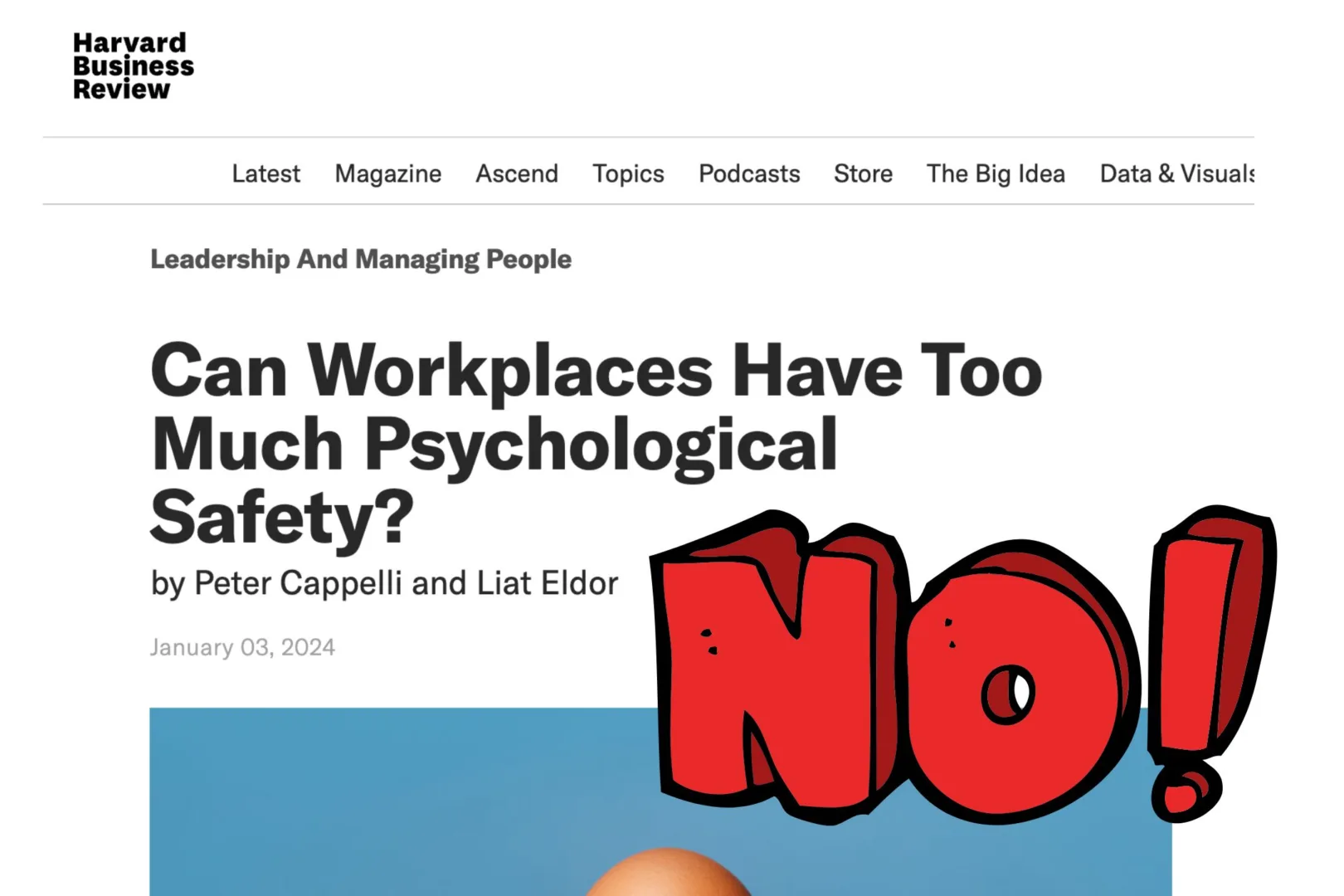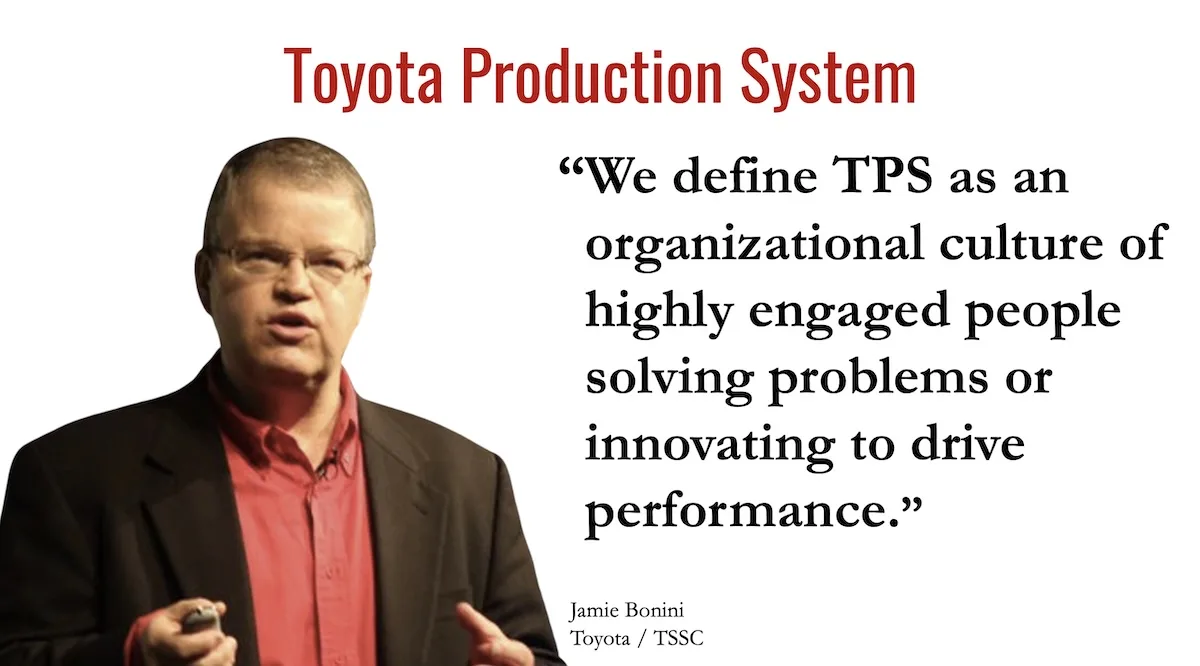Thanks to Timothy R. Clark and Junior Clark for this excellent episode of their “Culture by Design” podcast from LeaderFactor:
In the episode, they debunk myths and misunderstandings about Psychological Safety that unfortunately get spread in workplaces and publications.
In this case, it was an article in the Harvard Business Review titled:
“Can Workplaces Have Too Much Psychological Safety?“

Psychological Safety means, basically, that you feel safe speaking up about problems, mistakes, ideas, disagreements, etc., without the fear of being punished or marginalized.
The Clarks define it as:
Defining psychological safety (01:35) Most of the debate around the question of whether you can have too much psychological safety stems around your definition of the term. Tim and Junior share theirs: Psychological safety is an environment of rewarded vulnerability that considers four stages and categories of behavior, we have inclusion, learning, contribution, and challenging.
From their definition, “vulnerable acts” are those that expose us to the risk of harm or loss in the workplace. I'd add that instead of telling people, “You should be vulnerable by speaking up,” the most effective leaders behave in ways that reduce the amount of fear, risk, or danger. Leaders cultivate psychological safety by rewarding candor — it's good for the people and it's good for the business.
Speaking up with candor leads to more innovation and better organizational performance. You can't have “too much” of that — and you can't have too much Psychological Safety.
Parallels to Lean
There's a parallel to Lean. If somebody mistakenly defines Lean or “Just in Time” as “low inventory,” then yeah you can have “too much of that.” But defining Lean more along the lines of a culture that engages everybody in improvement–you can't have too much of that.
I've previously quoted Toyota's Jamie Bonini as defining the Toyota Production System this way:

You can't have too many highly engaged people, and you can't have too much problem-solving or innovation.
What the HBR Article Gets Wrong
The authors define Psychological Safety via Amy Edmondson (hear my interview with her):
“…a context that is psychologically safe is one where people feel they won't experience interpersonal harm — being ridiculed or otherwise personally attacked — if they try to speak up, make mistakes, take risks, or ask for help.”
The authors throw out this strawman to try to explain their studies that show that job performance in routine work declines beyond a certain level of Psychological Safety:
“…it could be that an environment where bosses push the “no bad ideas here!” view encourages people to take risks when they shouldn't.”
Psychological Safety isn't about taking risks or being reckless. I don't think Psychological Safety means “no bad ideas here.” It means that people are safe to speak up about ideas for improvement. But leaders and colleagues also feel safe to push back or disagree. Psychological Safety doesn't give you carte blanche to do whatever the heck you want in a workplace. Psychological Safety isn't anarchy.
The authors also confuse “accountability” with some supposed need to punish people for mistakes.
“Suppose you had a team whose members reported that there was almost zero chance that they would be held accountable for making mistakes. Psychological safety would be rated as very high there. That is fine if your job requires taking risk; it's not fine if mistakes matter.”
As I write about in The Mistakes That Make Us: Cultivating a Culture of Learning and Innovation, punishing mistakes can be counterproductive in many ways. Most mistakes have systemic causes and contributing factors. Psychological Safety and “Just Culture” must co-exist if we're going to reduce mistakes over time. We must combine Psychological Safety and effective problem-solving. That means getting beyond the blame game that the HBR authors seem stuck in.
What do you think about the article and their framing? Can certain roles or workplaces have “too much” psychological safety?
Please scroll down (or click) to post a comment. Connect with me on LinkedIn.
Let’s work together to build a culture of continuous improvement and psychological safety. If you're a leader looking to create lasting change—not just projects—I help organizations:
- Engage people at all levels in sustainable improvement
- Shift from fear of mistakes to learning from them
- Apply Lean thinking in practical, people-centered ways
Interested in coaching or a keynote talk? Let’s start a conversation.









